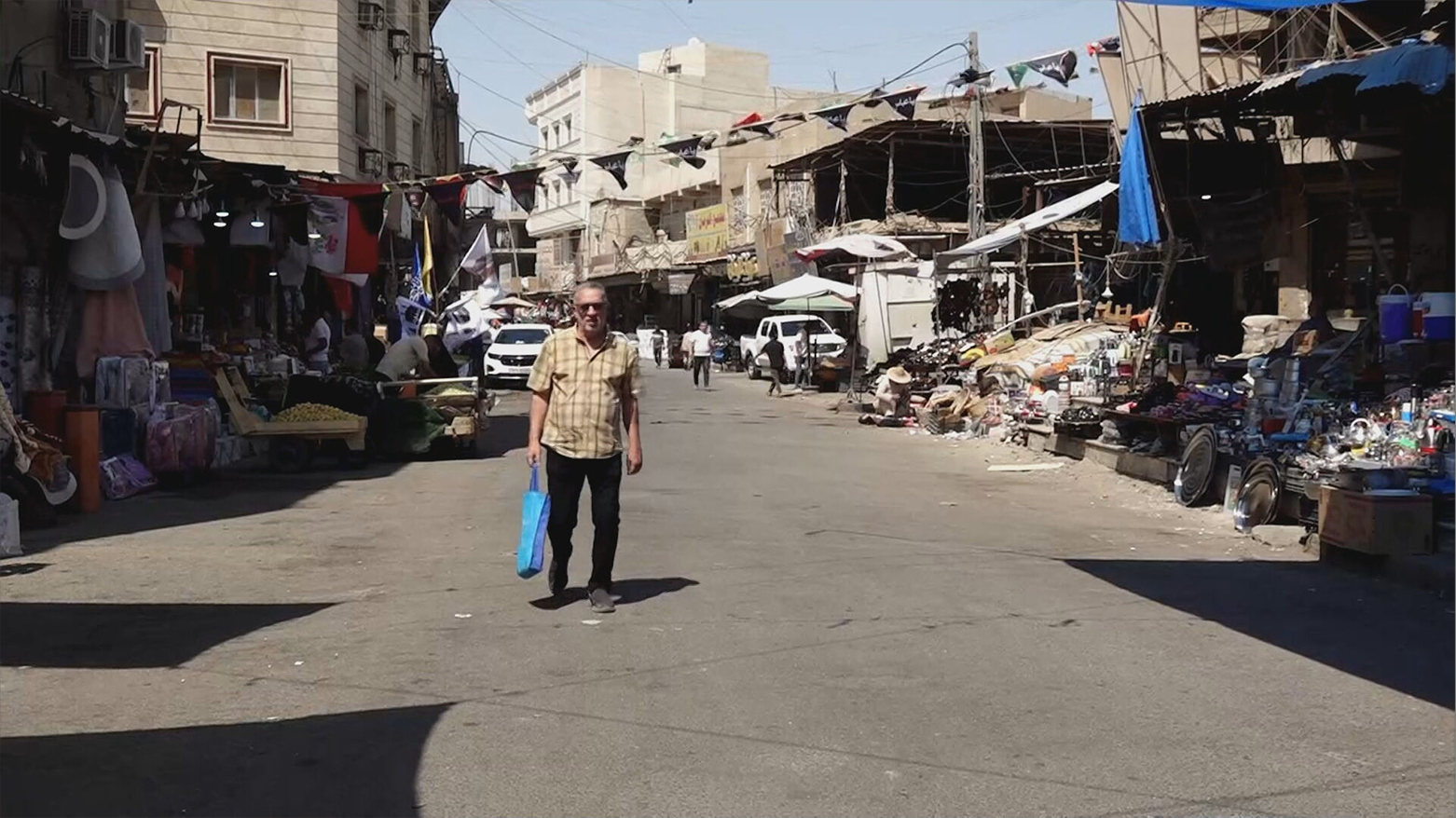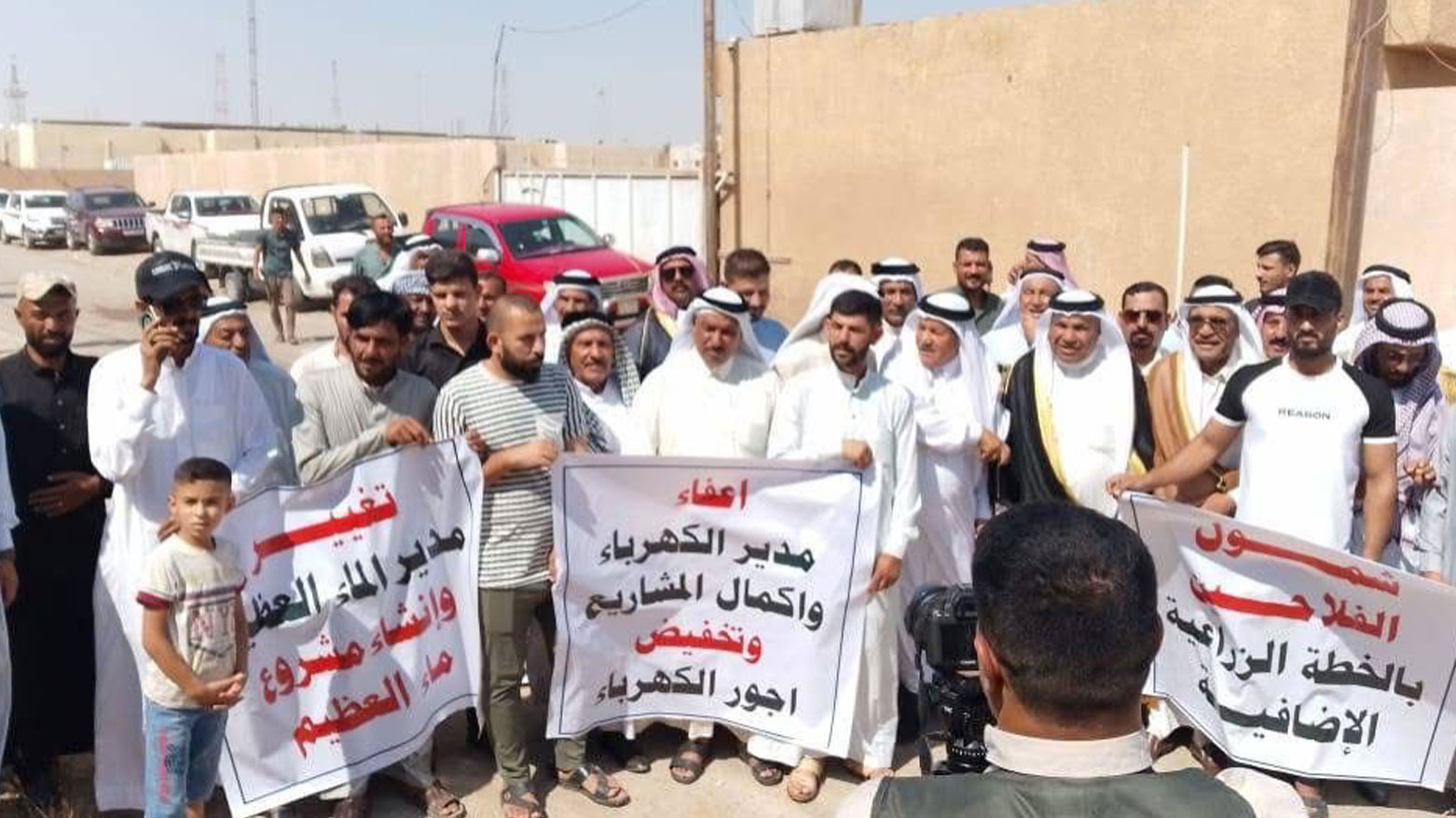Iraq Feels the Shockwaves: Economic Strain and Protests Emerge Amid Israel-Iran Conflict
Israel-Iran clashes spark economic turmoil in Iraq, especially Basra, where prices of essentials have surged due to halted Iranian imports. Protests erupted in Diyala over poor services. Fears grow that Iraq’s fragile economy and public unrest may worsen if conflict continues.

By Kamaran Aziz
ERBIL (Kurdistan24) – As the military confrontation between Israel and Iran continues into its fourth day, its repercussions are being felt far beyond the direct zones of conflict. In Iraq, particularly in the southern province of Basra, the war is already triggering economic instability and public discontent.
While Iraq is not directly involved in the hostilities, it remains highly vulnerable due to its deep reliance on neighboring Iran for essential imports such as food, dairy products, and vegetables. Residents, merchants, and analysts warn that Iraq could suffer severe economic fallout from the regional escalation.
Speaking to Kurdistan24, an Iraqi citizen said, “There is no doubt—the Israel-Iran war will impact the entire region, especially a place like Basra which is close to Iran. Because of that, the prices of food products and fruits have already gone up and will likely rise even further. Even in neighboring countries, the prices of essential items have increased."
Another local resident echoed similar concerns: “Basra will be the most affected by this war because we are close to the border. If the border is closed, prices will rise. The poor will not have money to buy daily goods. Even though Iraq itself is powerless and outside the conflict arena, missiles still fall on us, and their effects are felt here. If this continues, our economy will collapse because everything we rely on comes from Iran.”
Youssef Hussein, a merchant in Basra, noted that the anxiety of war has already translated into visible economic disruption. “There is definitely fear of war. Just look at the streets—there’s no one out. Prices have risen since yesterday, especially the price of yogurt and dairy products, which mostly come from Iranian sources. People are afraid of war, and the country’s economic situation is not good enough to bear further pressure. As merchants, we’ve observed that something that cost 1,000 dinars just a week ago is now 2,000. This is because people are afraid.”
Security restrictions have already brought the import of Iranian vegetables and food products into Basra to a halt, exacerbating price hikes and supply concerns. Economic observers attribute this worsening situation to the absence of strong government oversight.
In a separate development on Monday, June 16, public dissatisfaction erupted into street protests in northern Diyala province. Iraqi media reported that “dozens of citizens in the town of Odheim in northern Diyala province staged a protest, raised banners, and demanded the replacement of officials responsible for electricity and water, as well as a reduction in electricity fees.”

The protesters called on both the local and federal governments to respond promptly to their demands. In response, the local administration pledged to convey citizens’ grievances to the relevant authorities.
The deteriorating state of public services across Iraq has triggered repeated protests in recent years, particularly in provinces such as Diyala, Dhi Qar, and Basra. Citizens frequently voice demands for access to clean water, electricity, employment opportunities, and overall better governance.
Residents of remote and rural regions have also expressed long-standing frustrations over being deprived of basic infrastructure, as many of these areas continue to receive minimal government attention.
With Iraq situated at the geopolitical intersection of the current Israel-Iran confrontation, the country’s economic fragility and social unrest could deepen if hostilities persist. The lack of a comprehensive governmental response threatens to magnify the burden on Iraq’s most vulnerable populations in the weeks ahead.